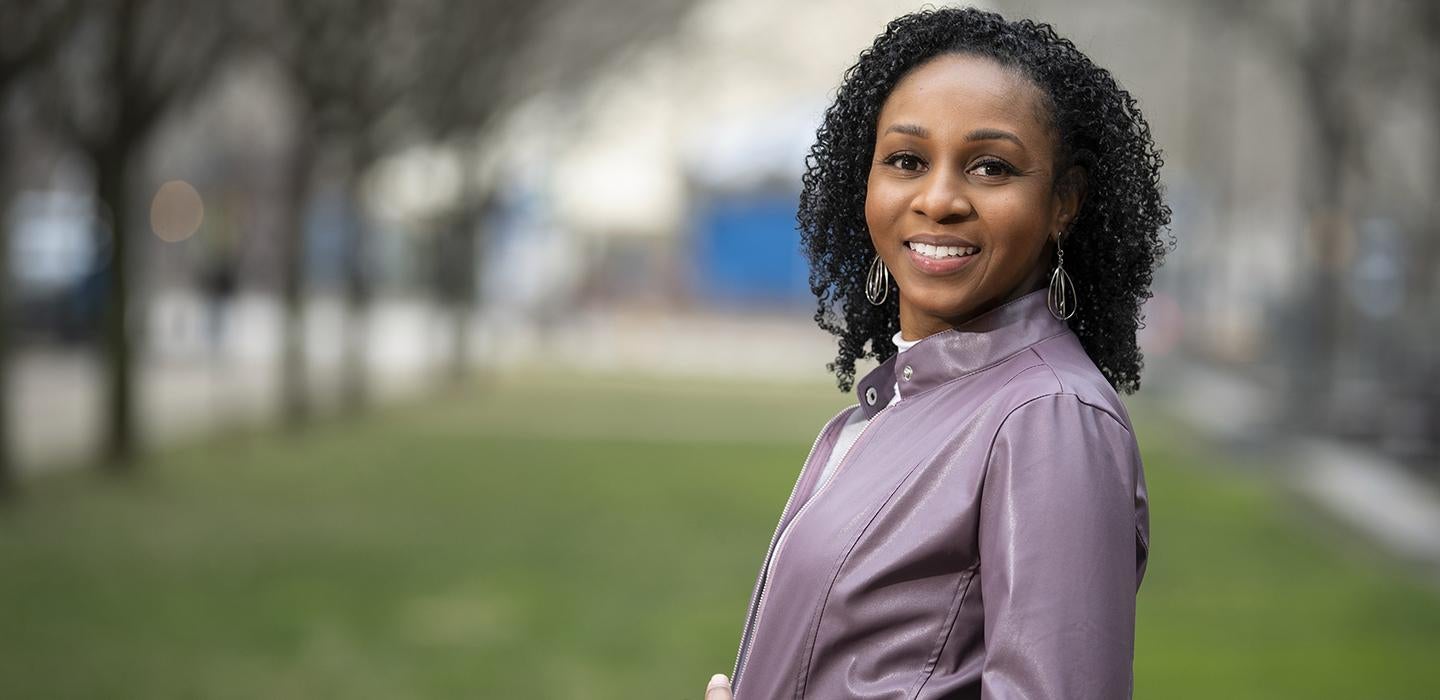
Subscribe to Pittwire Today
Get the most interesting and important stories from the University of Pittsburgh.Black History Month celebrations at Pitt kicked off with an event featuring Pitt Assistant Professor of Africana Studies Robin Brooks discussing her latest book, “Class Interruptions: Inequality and Division in African Diasporic Women’s Fiction.”
Brooks spent a year in Jamaica conducting research for the book, which Robert J. Patterson, chair and professor of Africana Studies at Georgetown University, described at the event as a “timely” and “fascinating” intervention between humanities and social sciences.
“I’m interrupting the lack of scholarship on class in these fields,” Brooks said.
The book contains both interviews with authors and contemporary texts by African American and Caribbean writers such as Toni Morrison, Oonya Kempadoo and Merle Hodge. It invites readers to explore imagination, inequality and the role of the individual while considering how one might eliminate unjust conditions. Ultimately, the book leverages the experiences and perspectives of Black women to better understand the increasing gaps between income and wealth around the globe.
Amid heightened national and global political tensions, Brooks urged readers to engage in shared issues and experiences.
“Class is an uncomfortable topic for many people no matter where you fall on the spectrum,” she said. “The book is solution-oriented and forward-looking. It encourages us to nourish our class consciousness, even if it doesn’t immediately and directly lead to policy overhauls. The highly stratified extremes we’re witnessing today didn’t just come out of the blue; there were laws and policies that facilitated this extreme we’re now a part of. Whether you’re aware of it or not, you’re being impacted.”
In case you missed the event, here are highlights from Brooks’ Q&A with Patterson, edited for clarity and length. You can also watch a recording of the entire conversation.
What motivated you to write this book?
I have long thought about class. Growing up in Miami, Florida, there are millionaires and people living in abject poverty, and seeing this shaped me. Fast forward to the Great Recession. Whether it was liberal or conservative news headlines, I would always see “the middle class is suffering” and think, “Well, what is then happening to the working class? What’s happening in other nations?” I wanted to know what my field is saying about this global discourse on class change. I focused on women writers to understand what interventions these writers were making amid the feminization of poverty.
Literary artists have long discussed class in their creative writing, but scholarship on this creative writing has not kept up. I’m trying to interrupt inequalities to, hopefully, destabilize the unjust status quo.
What are the inequalities you take up in your book?
The book is two parts. The first part is on African American creative writers like Dawn Turner. The second part focuses on anglophone Caribbean creative writers from Jamaica and Trinidad like Olive Senior and Merle Hodge. The chapters are organized around specific inequalities related to class, including housing, education, sexual violence and other state-sanctioned abuse and human rights violations. I saw these writers addressing those issues.
How are you defining class and making those separations?
Defining terms doesn’t fit into neat categories and is often controversial and contested. The lines are blurry. I define class as a dynamic set of relationships between people with similarities in economic, social and political matters. A point of consensus among scholars is that class shifts and is impacted by historical events like we’re seeing now with the pandemic.
With the literary portrayals of class differences, I cover three classes — capital, middle and working, which doesn’t separate working class and poor. I didn’t want to draw a hard line between the working class and the poor because my focus was on power systems. I want the concentration to be on damaging policies and practices without further stratifying the negatively impacted people.
Was there a text or topic you came across that piqued your interest but couldn't cover in this book?
Environmental injustices. When I began this project, I was not one of those people focusing on the earth and climate change hardcore, but I am now. The dumping of pollutants and other garbage leads to health challenges, increases in cancer, premature death and developmental delays in children worldwide. It's dire. I didn't discuss this in this book, but these issues connect to class issues.
What audiences did you have in mind when writing?
Anybody interested in learning more about inequalities and making a difference. I want people to pay attention to the role of class and people's lived experiences, to stop shaming others for things that stem from structural inequalities. The book draws on several different fields and is in conversation with scholars in Africana studies, literary studies, working-class studies, women's studies, history, anthropology, sociology and economics, so it appeals to multiple disciplines.
— Kara Henderson


